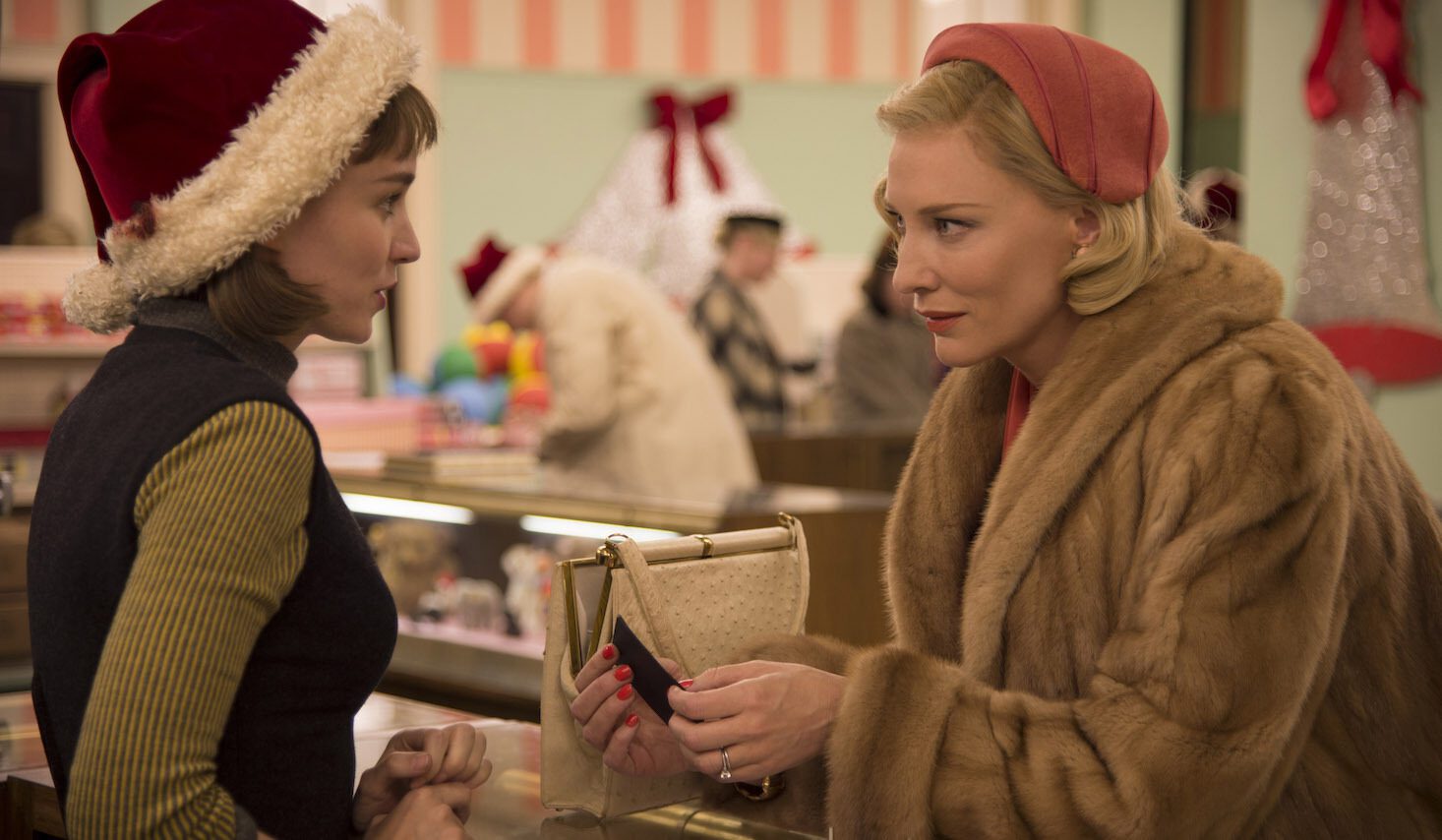
By now, it’s a cliché that the festive period is ~challenging~ for a variety of reasons. But the stereotype isn’t just the central premise of pretty much every festive romcom ever, it also bears more than a grain of truth – especially for individuals under the LGBTQIA+ umbrella.
Of course, there are problems which feel pretty universal: financial panic after haemorrhaging cash on presents which may or may not be well-received, nauseating small talk with distant relatives, and the post-office-party hangxiety that ramps your Sunday scaries up a notch or three.
However, for queer people there are plenty of additional stresses to face. Across our packed social calendars, we can encounter a steady stream of microaggressions – from intrusive questions to misgendering – that stack up into macro challenges by the beginning of the new year.
Even for those of us who don’t celebrate Christmas, there can be a social expectation to spend time off between December and January visiting biological family. Yet, for some in the community, time with relatives can be particularly challenging. Other queer folk might not be in contact with their family at all. Through no fault of our own, the most ‘wonderful time of the year’ can actually be the hardest and most isolating.
That’s why GAY TIMES has called upon Chris Sheridan – a BACP-accredited Psychotherapist and Clinical Sexologist and the founder and director of social enterprise The Queer Therapist – to provide expert advice on how to sidestep uncomfortable questions this Christmas and find space to connect with your chosen family. Keep reading to find out more…
I’m not out to my relatives – how do I spend time with my family this Christmas?
All queer people understand that hiding your identity is painful – but sometimes when we’ve not shared our sexuality or gender identity with our biological family it can feel like we’re hiding a secret that they ‘deserve’ to know. “Set boundaries,” says Sheridan. “Decide beforehand what information you’re comfortable sharing and what you’d like to keep private.”
Sheridan also recommends speaking to more open-minded relatives who might be able to help deflect any unwanted attention from the wider group. “Identify family members who might be more understanding or open-minded,” they say. “Consider confiding in a supportive relative who can act as an ally or provide a buffer during family events.”
How do I dodge intrusive questions from family members?
There’s always one family member who will simply ask whatever question pops into their head, no matter how inappropriate. As queer people, we’re often the target of their cross-examinations – whether it’s directed at our gender, sexuality or relationship choices – but it doesn’t have to be this way.
However, we don’t owe anyone any details we’re not comfortable with sharing. Rather than taking the risk of opening up without knowing how others will react, or just shrugging it off with a forced smile, Sheridan recommends acknowledging the question while keeping answers open-ended.
“In moments when faced with questions about your gender identity or sexuality, it’s perfectly okay to express, ‘Let me think about that more and get back to you,’ or ‘I’m not sure at this point,’” they explain. “It’s a recognition of the fluid nature of identity and an honest acknowledgement that one’s understanding can evolve over time.”
Decide beforehand what information you’re comfortable sharing and what you’d like to keep private.
What do I do if I feel unsafe presenting as my true self in my home town?
Finding your own individual sense of self-expression as an LGBTQIA+ person can be the best part of discovering your identity. While it shouldn’t be this way, some individuals feel like presenting in the most authentic way for them can attract unwanted attention when returning home for the holidays – especially if travelling from a diverse city to a more conservative area.
Concerns about how we present ourselves are, at their core, concerns about our safety as queer people. With that in mind, it’s worth taking stock and trying to exercise as much control over physical environments and travel arrangements as possible. “Consider what will contribute to your sense of safety,” Sheridan advises. “Key things to consider before your visit include the duration of your stay and your accommodation – who do you want to stay with during your visit?”
Depending on your family and friends back home, you might be able to ask for a helping hand in making your trip as safe and secure as possible. Even a simple favour, such as having someone you know to pick you up from the station or airport, meaning you don’t have to travel to your final destination on your own, can be a huge support.
However, we may also want to ensure that we have a backup plan to help us disengage from the environment and return to somewhere that’s safer for us, if necessary. “Having an exit strategy, such as taking a break or having a reason to leave early, provides you with control over your environment,” Sheridan explains.
Ultimately, it’s worth also keeping in mind that your safety and comfort is tantamount. If going home for the holidays may jeopardise that, you are allowed to voice this and stay in an environment that carries less personal risk – which is where the next point comes in…
View this post on Instagram
I don’t want to go home to see my biological family for Christmas – how do I tell them?
Obviously, telling your family that you’re not going to be around the dinner table on the 25th may not be so well-received. Setting boundaries with your biological family can feel difficult, but it’s the first step towards putting yourself first.
Here are some pointers on how to have the Chat:
- Make notes of what you want to say. “Before communicating this with your family, consider what you want to say. Jotting down your thoughts with ‘I feel’ statements can be a helpful way to distil your emotions,” says Sheridan.
- Use ‘I feel statements’ to help your family understand your decision. “Instead of saying something like, ‘You don’t accept me,’ try expressing, ‘I feel hurt and rejected because, when you do ‘X’, it feels like you don’t accept me. I’m not sure if this is your intention, but the impact makes me hesitant to return to our hometown.’”
Finally, while you go through this process of boundary-setting, it can help to be in contact with your chosen family or understanding friends so you can talk through any fear or anxiety that may arise with a third party.
What’s the best way to remain connected to the queer community when you’re not physically with them?
Whether you’re spending Christmas on your own or breaking crackers with your cousin over Boxing Day lunch, spending time with other LGBTQIA+ people can be a way to combat loneliness and affirm your identity this December. But how do you do this when you’re not at home or when local queer bars empty out of familiar faces?
“Engaging with online queer spaces and social media groups is a great option,” says Sheridan. For those who have travelled to stay with family, it can be worth checking out any local GBTQIA+ events or gatherings. “This can provide a sense of community and can reshape your experiences of your home town,” explains Sheridan.
View this post on Instagram
How do I look after my mental health during the festive period?
Self-care is important at all times of the year, but when the holidays kick off it’s important to prioritise mental wellbeing. “The festive season can be overwhelming, so ensure you take time for yourself,” says Sheridan. “Whether it’s reading sapphic literature, watching LGBTQIA+ movies, or downloading a queer mental health app such as VODA, self-care contributes to your well-being.”.
However, sometimes a bath and a long walk just don’t cut it. If you find yourself struggling with your mental health – whether it is feeling down for prolonged periods of time, or levels of anxiety which disrupt your everyday life – speak to your GP at the earliest convenience. Within your appointment you will be able to discuss treatment options such as medication, therapy and mindfulness techniques.
In the interim, there are a range of queer-specific mental well-being resources you can access while you wrangle your GP receptionist for an appointment.
- Switchboard: An LGBTQIA+ helpline staffed by LGBTQIA+ volunteers, available to help with a range of issues facing callers. Available to call from 10am to 10pm via the free to call number 0800 0119 100, you can also email them or get in touch via instant message on their website.
- CliniQ: A trans-led organisation which provides holistic care for trans, non-binary and gender-diverse people. As well as offering vital services such as HIV support and trans-inclusive PrEP provision, CliniQ offers a free counselling and mentorship service.
- Pink Therapy: A directory of LGBTQIA+ friendly therapists and an organisation which pioneered the term Gender, Sex and Relationship Diversity (GSRD) Therapy. Through the online resource, you can find counsellors who are sexuality and gender-affirming, and there are also filters to help you find professionals with an awareness of kink or non-monogamy. Although all therapists listed are in private practice, many offer sliding scale rates for those lower-income clients.



